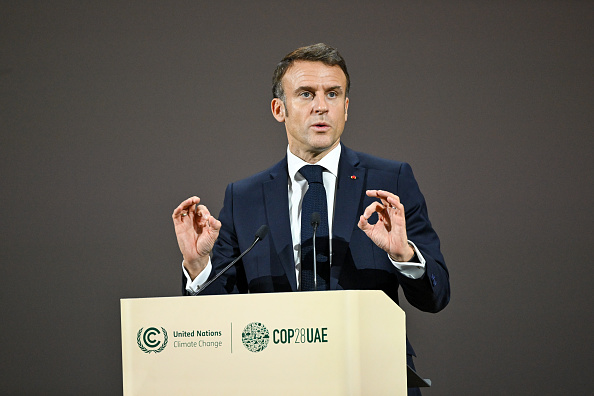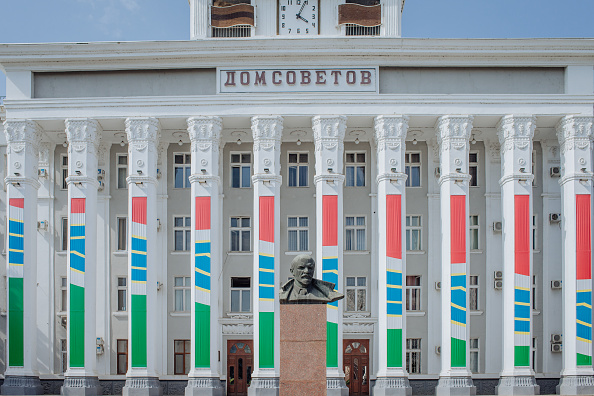Much of the media broadcasting from Poland want us to believe that the biggest challenge for the new liberal government in Warsaw is judicial reform. More specifically, they claim it is to break the resistance of judges and prosecutors installed by previous governments.
The most contentious issue today is the vision of a future Poland and its place in a future Europe. Is Poland to be a captive cog of a collectivist Europe under treaties stripping nation-states of most of their sovereign decisions, or is it to follow the ambitions of a regional leader?
For the past 200 years, the key to political stability in Central Europe has been some sort of agreement between Russia and Germany, over the heads of Poland, the Czech Republic, Hungary, Romania and Moldova.
In different years the spheres of influence were distributed differently, but one thing remained constant. The fate of Central European states was decided in Moscow and Berlin.
For the first time in centuries, these two local hegemons are going through tough times. Whether we call it the loss of a growth model, Europe’s sick man, or just economic fatigue – as German Finance Minister Christian Lindner put it in Davos – there is no doubt that for the first time in centuries, Germany, and Russia, have not only lost the ability to cooperate geopolitically, but also the ability to shape Central Europe to their liking.
In the past, the political vacuum in this part of the world usually ended tragically. The question is how and who is to replace Russia and Germany this time. Will it be “Greater Europe”, or will Poland finally manage to create its own self-entity and breathe new life into a withering Europe?
A lot depends on Donald Tusk’s government today. Will the EU commissioners, who are now being greeted humbly in Warsaw, be given a free hand not only to establish the “rule of law” in Poland, but also to mold this conservative, pro-family and mostly Catholic society into one similar to the progressive societies of the West?
By continuing to push European standards at every turn, will they see that Poland finally adopts the euro and, like the poorer countries of the south, entangle Poland in a matrix of debt and financial dependence, depriving the country of the ability to make strategic investments?
A critical test will be the economic strategy and the government’s approach to major infrastructure projects, without which Poland will not get out of the mid-development trap and make its second civilization leap.
Poles made their first leap after 1989, when they increased their national income per capita by 300 per cent. This was the best result in the recent history of Europe.
Poland has risen from a third world economy to the group of highly developed countries. With the fastest-growing economy in the European Union, record low unemployment and an industrialisation level catching up with Germany, Poland has historic opportunities ahead.
However, simple competitive advantages are slowly being exhausted. Demographics, lack of manpower, high dependence on coal energy and lack of domestic capital, require the country to come up with bold new ideas, new models of development – a second civilisational leap.
In the first place, Poland needs bold market and tax reforms. Unfortunately, neither the previous nor the current government is planning them.
Second, Poland needs several critical investments – big projects like the Central Communication Port (a CPK major intercontinental airport), plus a vast container hub, that could handle up to 50 million passengers annually.
This project was a flagship investment of the previous government. Partly for this reason, the new government is considering killing it.
An additional reason may be a desire to please Berlin. Germans are concerned that CPK would take away some of Central Europe’s passengers from German airports, and worse, cargo traffic from the entire region.
It is estimated that 50 billion euros worth of goods will flow through CPK annually. This is money that will not go to German airports. A petition to the government to keep the investment is circulating online. In just three days, the petition already had tens of thousands of signatures.
Another big project planned by the previous government is the development of a nuclear reactor complex. Berlin’s resistance is particularly strong in this case. Not only because of their well-known nuclear phobia, but also their earlier hopes that Poland would be an important recipient of Germany’s surplus renewable energy and a major importer of renewable technology.
Here the Tusk administration is behaving bizarrely, making all sorts of evasions, suggesting changes in location, the need for additional analysis, research, or the search for new subcontractors. It’s as if he’s looking for a way to escape previous commitments, but at the same time he’s avoiding making decisions so as not to alienate the 70 per cent of Poles who support the construction of the nuclear reactor.
The third major investment that Germany can’t stomach is a container port on the Baltic Sea in Swinoujscie, close to the German border, with a planned capacity of 2 million TEUs.
Swinoujscie would take over a significant portion of freight transport to and from Central Europe via Hamburg. The German side has long opposed the construction of the port, citing environmental concerns. The Germans have even hired specialist law firms, but have so far lost in all instances.
Unsurprisingly, the local governor, who represents the new government, has come to the aid of the German side, announcing the establishment of a national park on the Oder River, which flows into Swinoujscie. In one fell swoop, he wants to thwart the plan to expand the river’s navigability and the sense of building a port.
The dispute over the rule of law in Poland is well known and publicised in Europe. The judicial reforms announced by Tusk amount to little more than restoring the previous court structure and throwing out those appointed by PiS.
The government does not have any fundamental reform plan to heal the judicial system, which was already in a poor state before Kaczynski’s rule. There is nothing that would improve confidence in the courts or speed up proceedings. These reforms will have little effect, except for the unblocking of European Recovery Plan funds.
Meanwhile, the abandonment of critical investments as the price of pleasing Germany, or gratitude to Brussels, could deprive Poland of a historic opportunity for development, and Europe of a more solid structure for a future Union





Europe’s capital needs media to challenge the status quo: That’s why Brussels Signal is launching